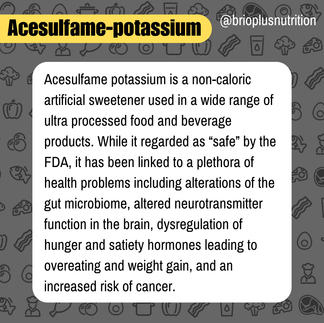Room Temperature Protein Drinks: What's Even In That
- Jocelyn Rylee
- Jan 10
- 3 min read

I challenged anyone to look up every ingredient in one of these room temperature "protein" drinks and learn about what they actually are. But you're busy, I get it. So I did it for you. Here's a few of them. You're welcome 😊
The reason these things are in there is NEVER your health. It's ALWAYS to increase the profits of the processed food company. Your interests are not aligned.
If you want protein, drink a glass of milk or eat some scrambled eggs. I don't know about you guys, but I'm not keen on getting my protein with a side of soybean oil, wood pulp, soap, and silicone lubricant.
Soybean oil
Soybean oil is made through a multi-step process that involves cleaning, conditioning, extracting, and refining. The most common method used to extract soybean oil is solvent extraction, where hexane - a solvent derived from crude oil - is applied to the crushed soybeans.
The crude soybean oil undergoes refining with further chemical applications, involving steps like degumming, neutralization, bleaching, and deodorization to arrive at the “edible” oil that ends up ubiquitously in our food supply.
Cellulose
Cellulose is a polymer made of glucose units and is the primary structural component of plant cell walls. As a food additive, cellulose is derived from wood pulp or cotton and is used in many ultra processed foods as a thickener, stabilizer, bulking agent, and anti-caking agent. Cellulose improves shelf life and can also improve the texture of low-fat or fat-free products.
Potassium hydroxide
Potassium hydroxide (KOH), also known as caustic potash, is a strong alkaline compound used in a variety of industrial and food applications. In the food industry, it is classified as a food additive (E525), used as a pH regulator, stabilizer, and thickening agent.
It is also used in soap-making, as a cleaning agent, and in some chemical manufacturing processes. In high concentrations, potassium hydroxide is highly corrosive and can be dangerous, but in the small amounts used in food processing, the FDA deems it GRAS.
Acesulfame-potassium
Acesulfame potassium is a non-caloric artificial sweetener used in a wide range of ultra processed food and beverage products. While it regarded as “safe” by the FDA, it has been linked to a plethora of health problems including alterations of the gut microbiome, altered neurotransmitter function in the brain, dysregulation of hunger and satiety hormones leading to overeating and weight gain, and an increased risk of cancer.
Dimethylpolysiloxane
Dimethylpolysiloxane (also known as polydimethylsiloxane or PDMS) is a type of silicone used by the food industry as an anti-foaming agent and emulsifier in the formulation of many ultra processed foods. Outside of food, dimethylpolysiloxane is used in products like cosmetics, pharmaceuticals, and household items due to its properties as a lubricant.
Carrageenan
Carrageenan is a food additive derived from seaweed, used as a thickener, stabilizer, and gelling agent in ultra processed food products. Carrageenan helps maintain consistency in products that need to stay creamy or gel-like (yogurt, plant “milks”, sauces, etc) while they sit on the shelf. There has been a lot of debate about the safety of carrageenan in food products, with concerns that it causes GI problems or IBS symptoms in some people and may damage the gut barrier.
Inulin
Inulin is a type of soluble fiber used as a food additive for its functional properties as a fat replacer, texture enhancer, and bulking agent in low-calorie or low-fat foods.
Inulin is fermented by the gut bacteria, which may actually have some health benefits. However, many people experience gas, bloating, or digestive problems when consuming inulin.
Potassium phosphate tribasic
Potassium phosphate tribasic is a chemical compound used in the food industry primarily as an acidity regulator, emulsifier, and stabilizer. Potassium phosphate tribasic is also used in pharmaceuticals and as a buffering agent in laboratory and industrial applications. Consuming excessive amounts of phosphates can disrupt the body's mineral balance and negatively affect bone and kidney health.
Dipotassium phosphate
Dipotassium phosphate (DKP) is used in the food industry as a stabilizer, emulsifier, and buffering agent. It controls the acidity of foods, improves texture, and prevents clumping. DKP is commonly found in UPF products like non-dairy creamers, processed cheese, beverages, soups, and baked goods.
Excessive intake of phosphate additives has been linked to health problems such as an imbalance in bone turnover and impaired kidney function.
Sodium hexametaphosphate
Sodium hexametaphosphate (SHMP) is used as a sequestrant, emulsifier, and stabilizer that prevents discoloration and extends shelf life in ultra processed foods.
In addition to its use in the food industry, SHMP has applications in ceramics, detergents, and water treatment where it’s used to prevent mineral deposits. Like the other phosphate additives, excessive intake leads to imbalances in phosphate levels, which affects bone health and kidney function over time.




















Comments